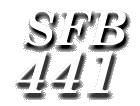|
|
Invited Talk
Harvesting Linguistic Evidence from the Web with the LSE:
The Case of the Benefactive Alternation
We examine the the English Benefactive Alternation (BA)
exemplified in (1) and (2):
(1a) Kim baked/bought/stole a cake for Chris
(1b) Kim baked/bought/stole Chris a cake
(2a) Kim decorated/frosted a cake for Chris
(2a) *Kim decorated/frosted Chris a cake
The double object alternant, as in (1b, 2b), is highly constrained.
Explications of the constraints, primarily in terms of lexico-semantic
features, have been formulated by Green (1978) inter alia.
But it turns out that these constraints are squishy. There exist both
inter- and intra-speaker variation in the judgments of many Benefactive
constructions.
Rather than rely on speakers' inconclusive intuitions, we decided
to examine the distribution of the BA by looking at the largest available
collection of unsolicited data, the web. We find that most of the
constraints posited for the BA on the basis of constructed data do not
hold, and that the BA is in fact far less restricted than the literature
would suggest.
The attested data indicate one single necessary, but not sufficient,
constraint on the alternation.
To enable future empirical web-based work, we developed a tool called
the Linguistic Search Engine, or LSE (Resnik, 2003), which allows us
to search efficiently for specific target structures and lexical-syntactic
patterns. We demonstrate the use of the LSE and briefly discuss the
implications of using web data for linguistic theory.
This is joint work with Philip Resnik, Mari Olsen, and Aaron Elkiss.
|
